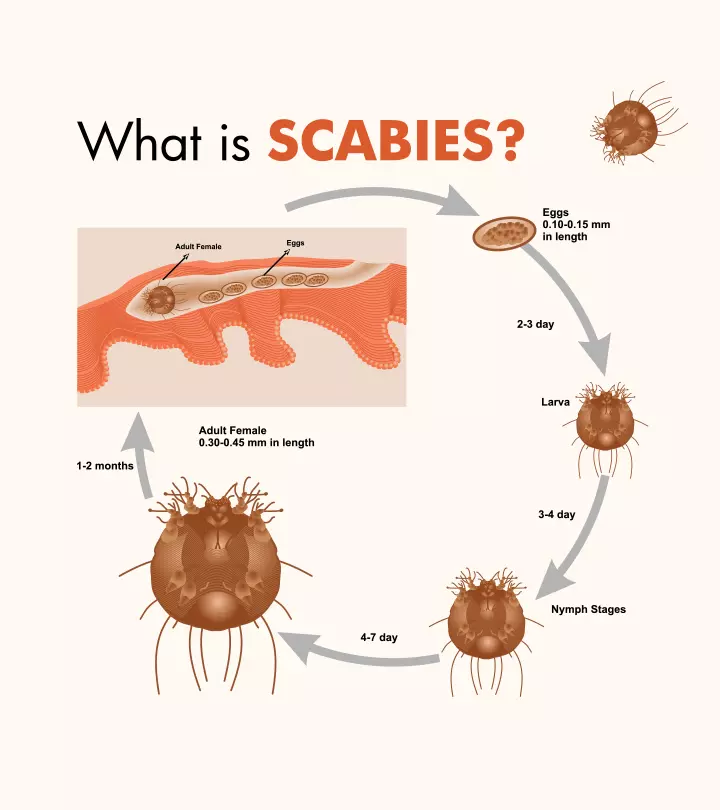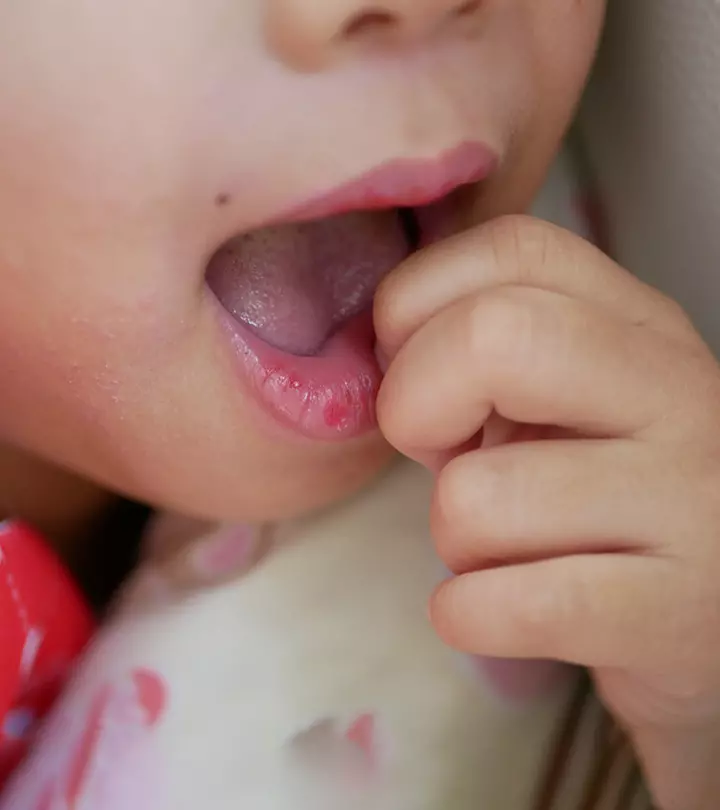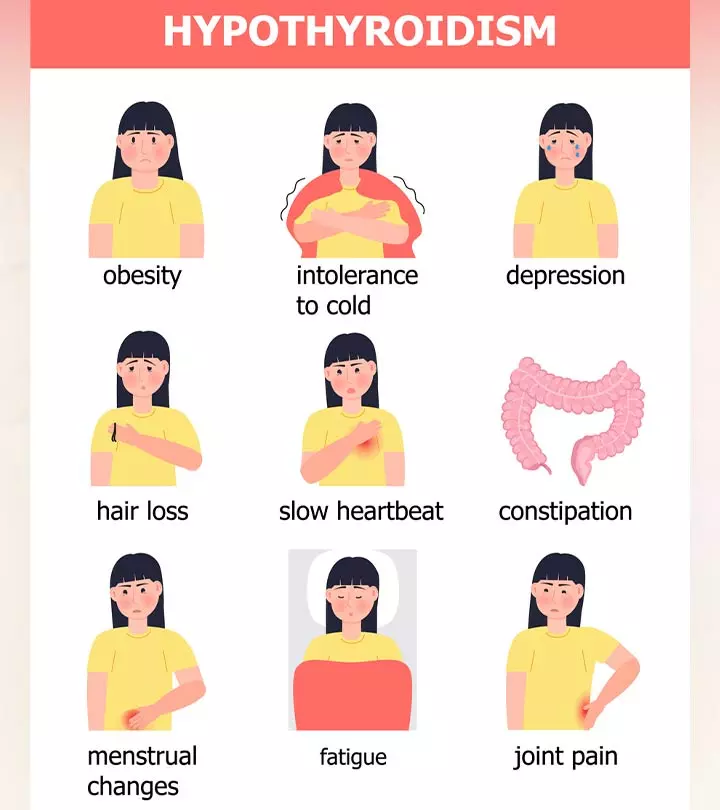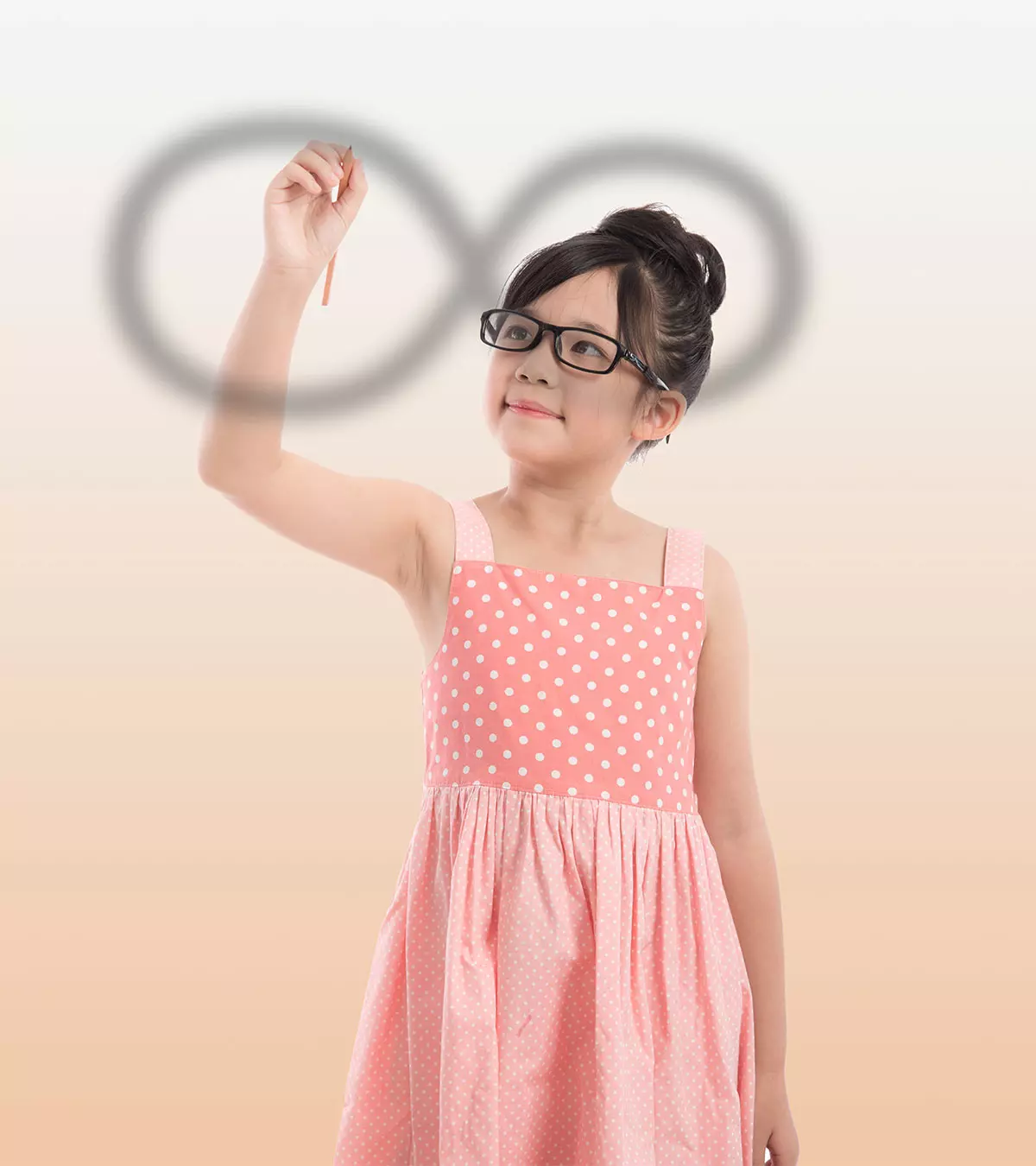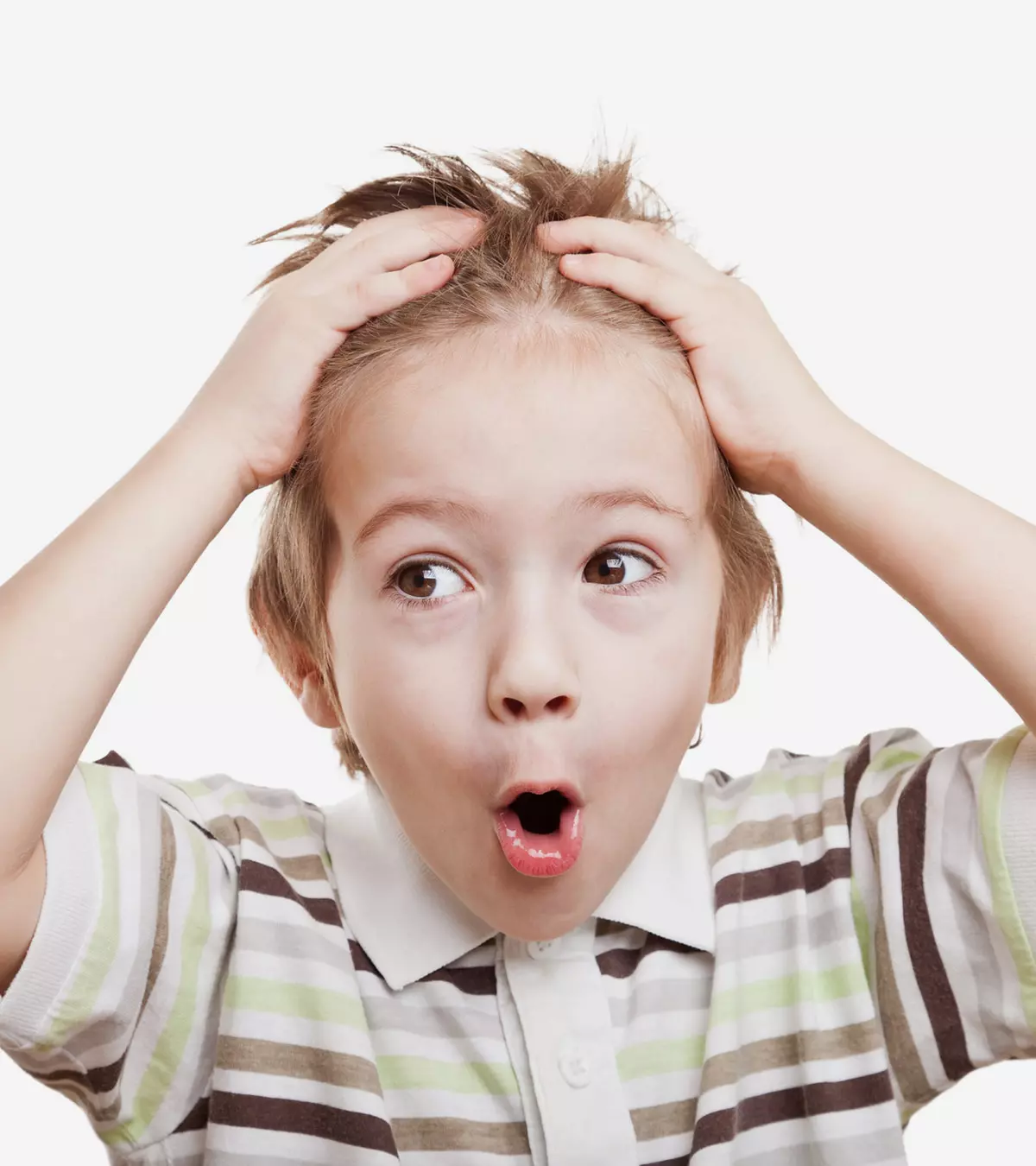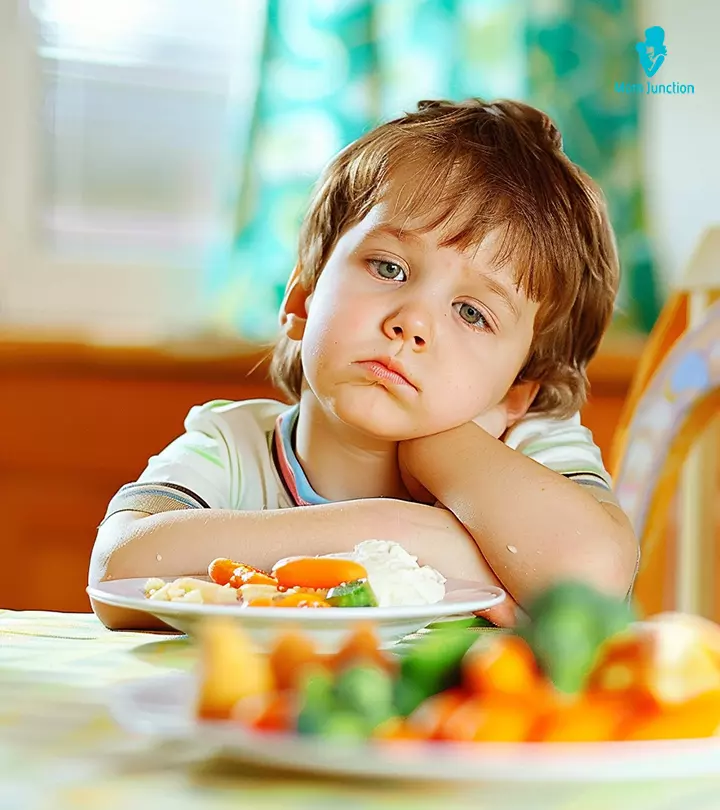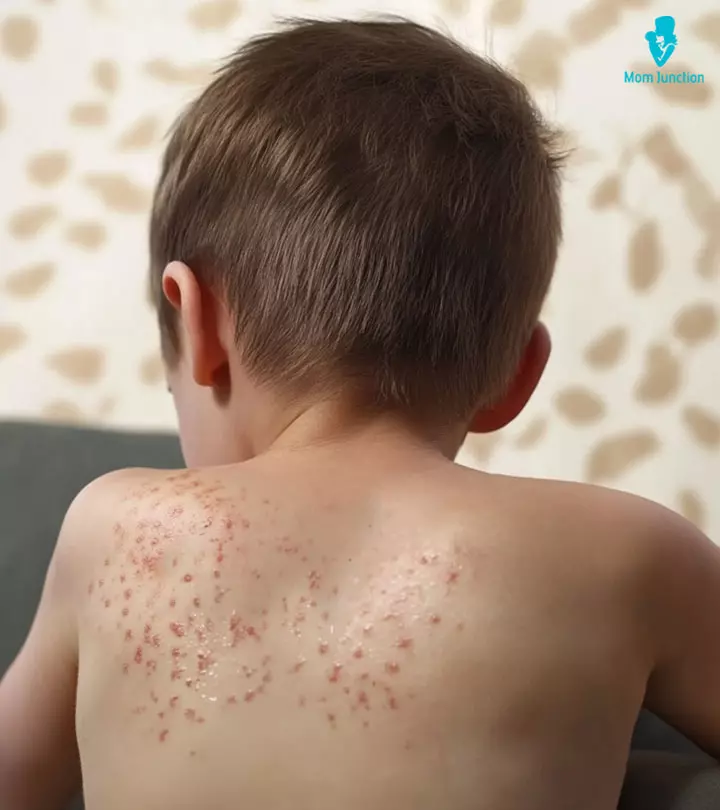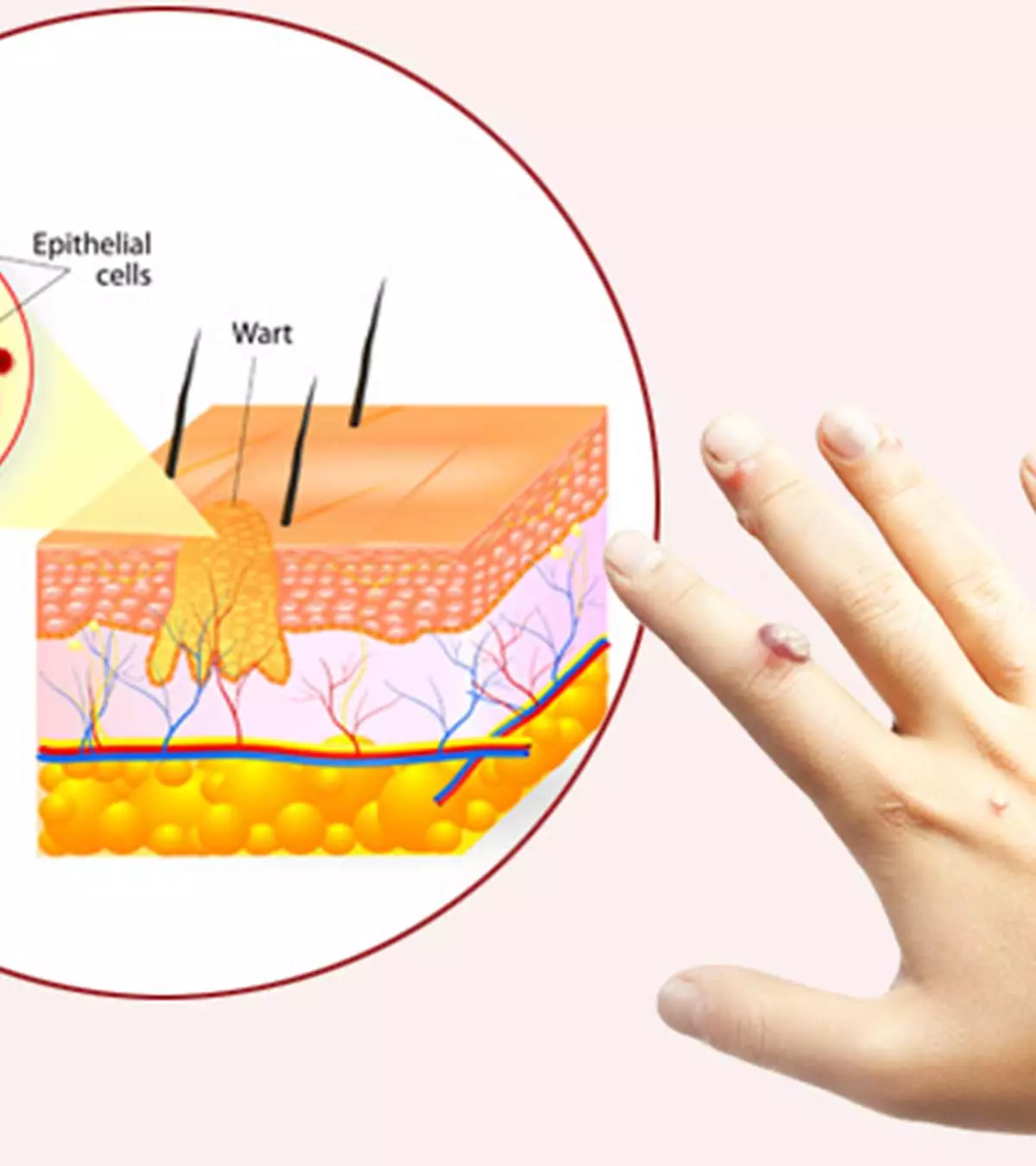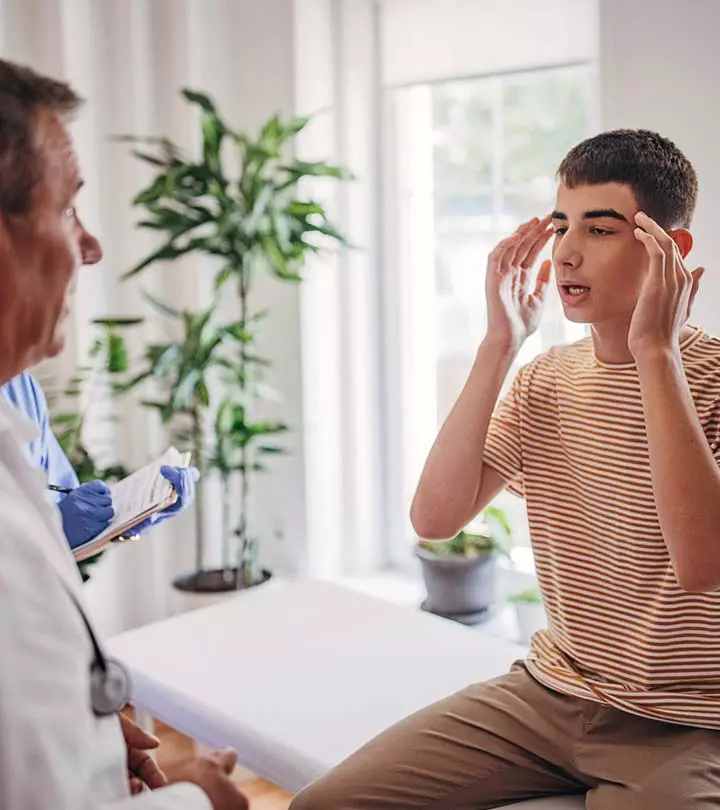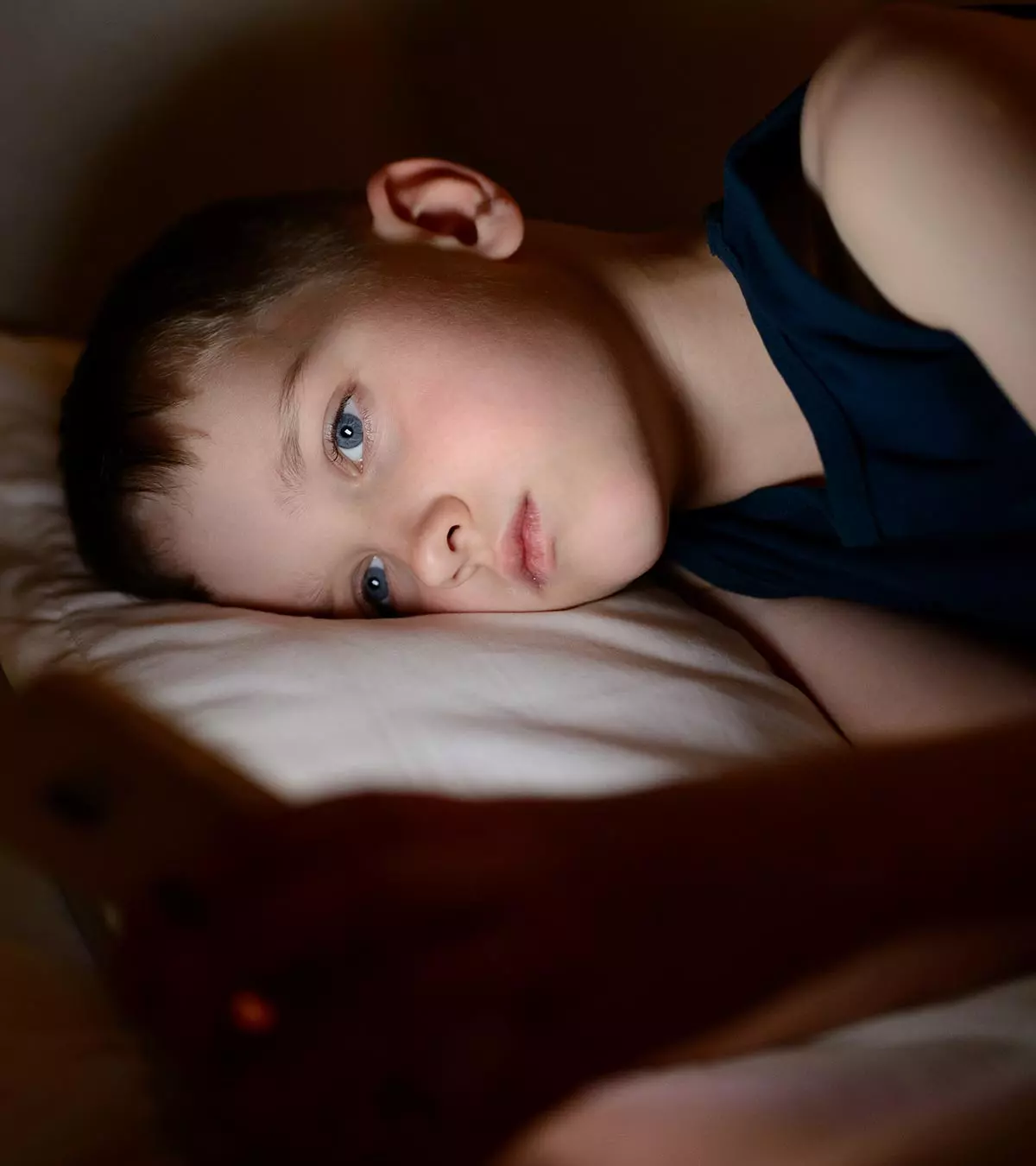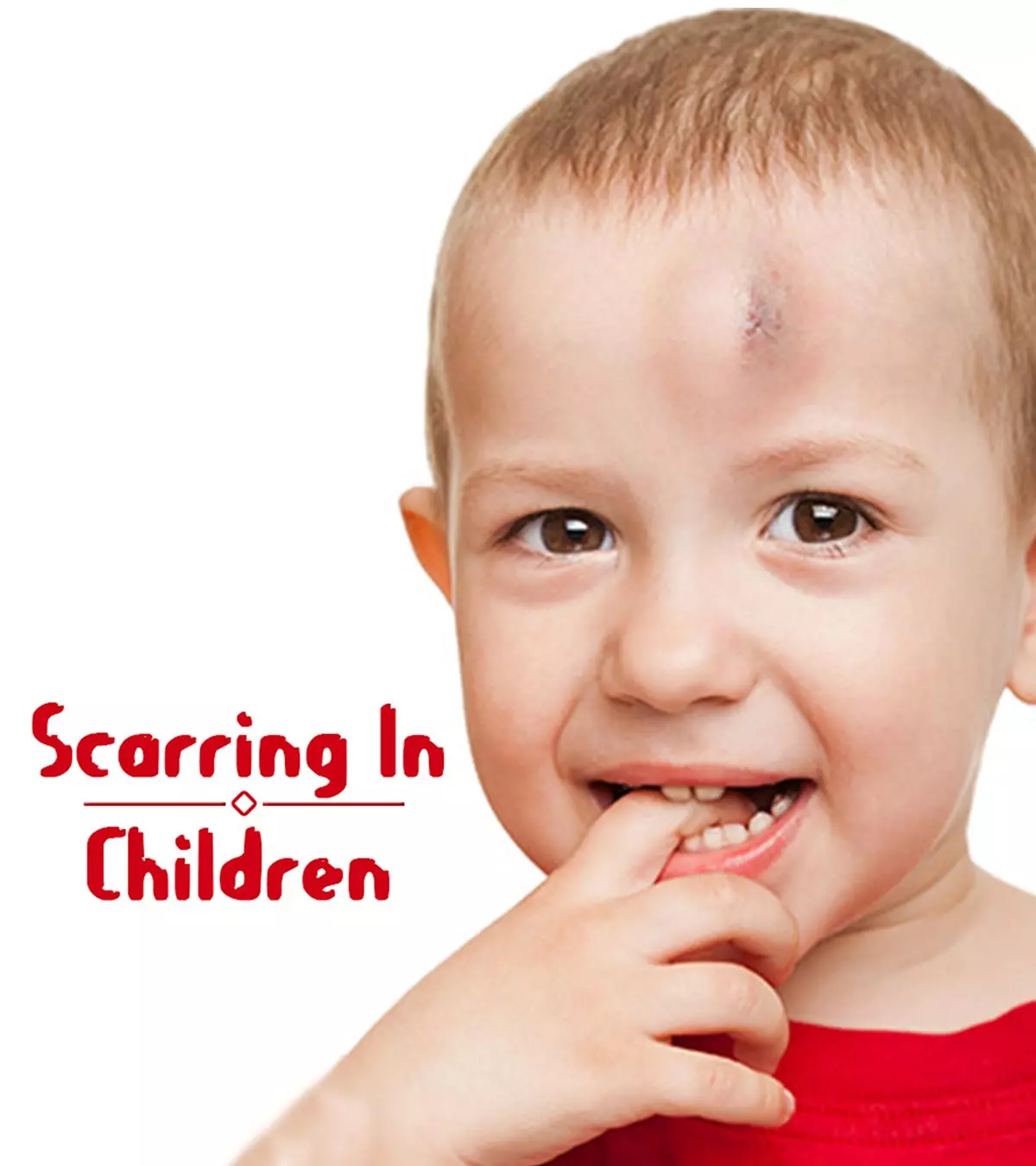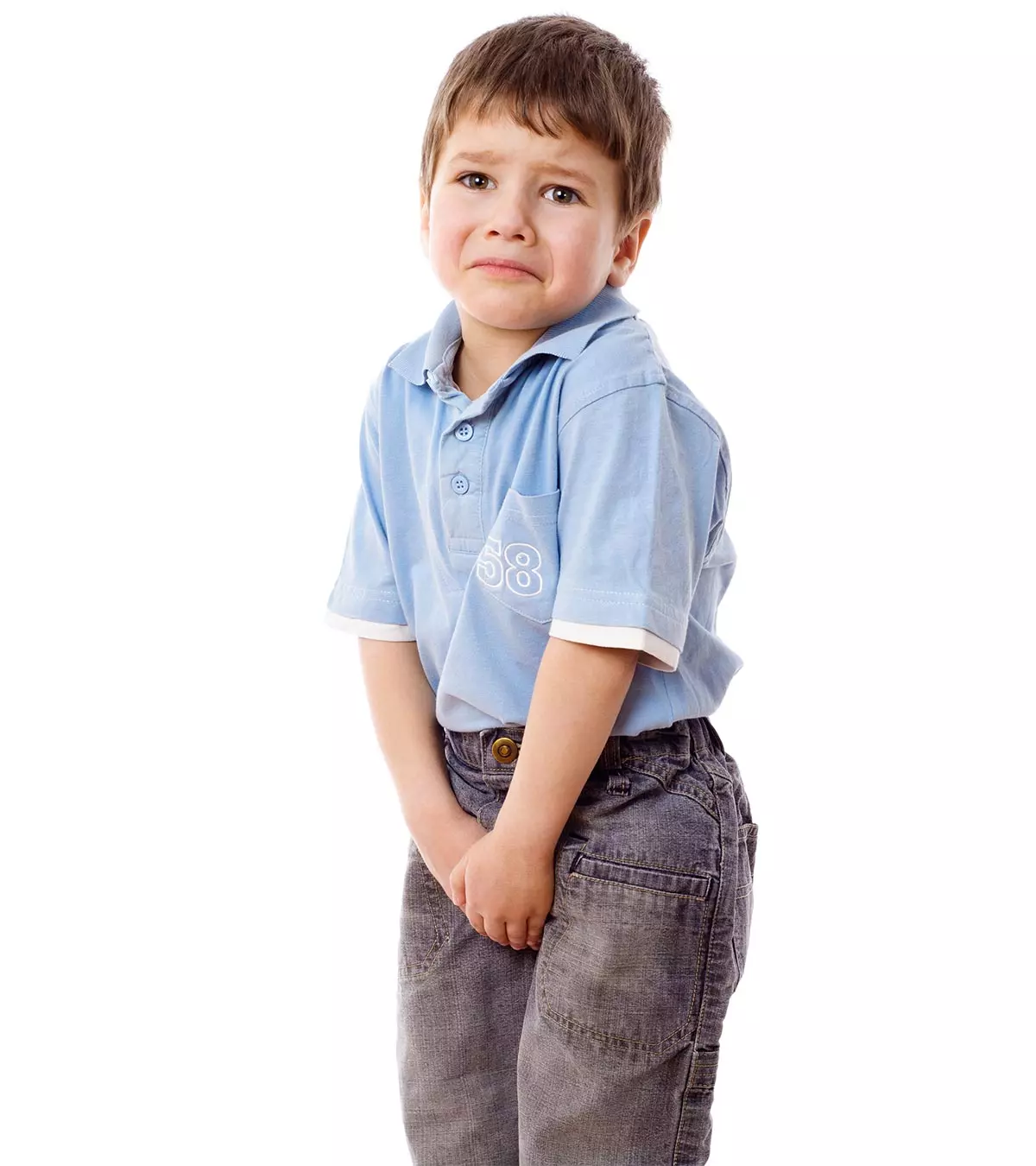
Image: Shutterstock
Pollakiuria, also known as frequent daytime urination syndrome, is a common condition responsible for frequent urination in kids (1).

Urinary frequency is a sensory emergency of peeing without the physical need to pass urine. The child might feel to urinate at the earliest but pass only a small amount of urine every time they feel urinary urgency (2). This condition is usually self-limited and benign. They last for about a few weeks or months (3). However, in some children, pollakiuria might last for comparatively long periods. While this condition is somewhat common in children, it may be concerning for parents. Learning about its causes and how to manage it can help ease their concerns and ensure kids get the appropriate care. Read on to know more about pollakiuria, its symptoms, causes, treatment, and ways to manage this condition.
Key Pointers
- Pollakiuria is a benign, self-limiting condition.
- Children with frequent urination may urinate every 5 to 10 minutes without discomfort or incontinence.
- Diagnosis may include a review of medical history, a urine test, physical examination, and imaging or ultrasound.
- Treatment may include emotional support, bladder retraining, addressing any triggering factors, and, in some situations, medicine for underlying disorders.
How Often Should A Child Urinate During The Day?
Children in school (ages 5 and older) should urinate about 4 to 7 times a day, roughly every 2 to 2.5 hours. Younger children, however, may need to urinate more often (4).
Sometimes, the child may urinate more often if they have taken more fluids, if the weather is cold, or just for fun (younger children).
Medical expert Dr. Po-Chang Hsu says, “The number of times a child urinates per day varies based on age, hydration, and overall health. Toddlers (1–3 years) may urinate around 4–6 times a day, while preschoolers (4–6 years) might go about 4–7 times. As children grow, their bladder capacity increases, and they may urinate 4–8 times daily. However, these numbers are general guidelines, and some variation is normal.”
 Did you know?
Did you know?What Causes Frequent Daytime Urination in Children?
The cause of frequent daytime urination is not exactly known. There is rarely any physical cause associated with this condition (5). Experts believe that it may be related to psychological or psychogenici Arising from the mind or mental or emotional tension factors. In certain cases, stress or problems related to school, home, or family may be the triggering factors in children (3). According to a report by the American Academy of Pediatrics (AAP), anxiety-inducing situations, such as a fear of death, can potentially trigger pollakiuria (6).
Other triggering or precipitating factors may include the following (1) (3) (5) (7) (8) (9):
- Psychological factors such as school-related stress; the death of a family member or friend; relocation to a new home or school; the birth of a sibling; abuse or bullying; or parents’ divorce
- Dietary factors such as excessive intake of milk or caffeine

- Constipation
- Inflammation of the bladder (non-bacterial cystitis)
- Inflammation of the urethra (chemical urethritis)
- Overactive bladder or increased sensitivity of the bladder (can also occur during winters or cold days)
- Excessive secretion of calcium in urine (hypercalciuria)
- Diabetes
- Tic disorders such as Tourette SyndromeiA nervous system disorder causing sudden, repetitive movements or sounds called tics.
Daytime wetting in children can sometimes be caused by underlying health problems, such as bladder or kidney infections (UTIs), structural abnormalities in the urinary tract, or issues with the nerves that control bladder function (10). Often, no obvious triggering factor can be identified in children with this condition.
Symptoms Of Frequent Urination Or Pollakiuria In Children

The signs and symptoms of pollakiuria may include the following (11):
- The child may urinate (void) as frequently as every five to ten minutes. The frequency can be three to four times an hour or up to 30–40 times a day. It may also recur in a few months or years.
- The child may experience no abdominal flankiThe side areas of your belly between your ribs and hips, located on either side of your abdomen. , nocturnal enuresisiA condition where the child involuntarily urinates while sleeping at night. , or dysuriai Pain, discomfort or burning sensation with urination pain while urinating.
- There is no urinary incontinence (leaking of urine) or loss of bladder control in the child.
- A small amount of urine is passed in each void.
- There are no changes in bowel movements.
- The child may urinate at night (nocturia may be present in 25% of the cases), but the frequency will be quite less compared to the daytime. Nocturia is defined as a condition wherein one needs to wake up at night to urinate.
- There is no sign of polyuria (passing large volumes of urine) or an infection. The color, odor, and stream of the urine are normal.
- There is no excessive increase in the intake of liquids or fluids.
- There may be increased urination during school hours and accidents due to urgency.
- There are no signs of infection or underlying physical cause.
A mom blogger, who goes by the name ‘the alabaster mom,’ shares the symptoms her daughter’s experienced, “My kid got sick during Easter weekend and developed a significant fever. We took her to the doctor on Monday. I was very concerned about a possible kidney infection. She has been peeing very frequently (and when I say frequently, sometimes it’s as little as fifteen minutes from her last trip to the loo). It’s not constant (seems to come and go), but it has been worrisome all the same. We were told that it is probably something called pollakiuria. The doctor gave us a handout on the topic. Honestly, the symptoms fit A ( her daughter) to a tee: extremely frequent urination but without pain or burning, happens mostly in girls in preschool and kindergarten and typically goes away on its own after 6-8 weeks (i).” If you suspect that your child has pollakiuria, it’s important to seek medical guidance.
Diagnosis Of Frequent Urination Or Pollakiuria In Children

Pollakiuria is a benign condition (12). Therefore, healthcare practitioners may not opt for invasive examinations if the urinalysis report and physical examination results are normal.
Doctors usually examine the medical history and perform a physical examination (2). In addition, doctors distinguish frequent daytime urination (pollakiuria) from diuresis or polyuria (excessive production or passage of urine) due to metabolic disorders such as diabetes insipidusiA rare disorder that creates a fluid imbalance in the body due to overproduction of urine and diabetes mellitusi A condition characterized by high blood sugar levels (3).
Doctors may suggest the following laboratory or clinical evaluations (2) (12).
- Medical history: This evaluation may help identify the history of urinary tract infections (UTIs), diabetes mellitus, or other infections in your child. Any changes in your child’s urinating pattern or behavior can also be detected.
- Physical examination: The presence of abdominal or flank pain may be checked. Normal neurological examination to check lower extremities (legs and feet) can also be performed.
- Urinalysis: Protein and glucose levels, urine osmolalityiThe concentration of particles in urine , and specific gravity may be checked through urinalysis. A sediment examination may also be performed. The presence of proteinuria (presence of excess protein in urine), hematuria (presence of blood in urine), or white blood cells (WBCs) may be checked. In addition, the presence of hypercalciuria (excessive calcium in the urine) may be evaluated. A urine culture may be suggested too.
- Imaging/ultrasound: Ultrasonography of the bladder and kidneys may also be performed to detect any abnormalities in some instances.
- Uroflowmetry: Also known as a “flow rate test,” this test helps evaluate any abnormalities in the urinary flow. During this test, your child urinates into a specialized device that looks like a portable toilet. This device is connected to a computer, which measures the amount of urine passed and the speed of urination.
Treatment For Frequent Urination Or Pollakiuria In Children
Once the doctor has performed the initial examination of your child and identified the triggering factor(s) for pollakiuria, the required therapy or management options can be discussed. Usually, children may not need medication for this condition.
Management of frequent daytime urination may involve one or more of the following (9) (11):
- Reassuring and supporting both the child and the parents: It is important to understand that this condition is benign and self-limiting (occurs for a specific duration). Reassurance and emotional support can help parents understand that this condition does not indicate any medical complication or underlying diseases and that the child is healthy.

Besides, if emotional or stress-related triggers are identified as the probable causes, children should be encouraged to talk to their parents or undergo counseling.
Do not get annoyed at your child over the frequency of urination. Be mindful of their feelings or emotional distress. You can also assure your child that waiting a bit longer to use the washroom will not cause any mishappening.
 Quick tip
Quick tip- Dietary changes: It has been observed that the presence of excessive calcium in the urine and consumption of acidic and oxalate-rich beverages have an association with pollakiuria. Therefore, doctors may suggest avoiding acidic or oxalate-rich beverages, caffeine, and milk. Also, increasing the intake of healthier fluids and water may be recommended.
- Medications: AnticholinergiciA type of medication that blocks acetylcholine (a chemical messenger in the body) agents are commonly used to treat overactive bladder in children. However, their effectiveness in urinary frequency is debatable. A study involving children aged 3-18 found that adding montelukast to oxybutynin significantly reduced the frequency of daily urination in patients with pollakiuria. However, further research is needed to confirm these findings and explore the treatment’s long-term effects (13).
- Exercises: Bladder training and kegel exercises may improve bladder control and help children suppress the urge to urinate until the scheduled interval (14).
- Behavioral interventions: These may include bladder retraining, pelvic floor exercises, and biofeedback training. These techniques can help improve bladder control and reduce the urge to urinate frequently (4).
Home Care Tips For Management
If you notice any unusual increase in the frequency of urination in your child, make sure to visit a healthcare practitioner for the correct diagnosis.
In general, your child may not require drug management for this condition. You can help your child manage and cope with this condition, with these tips (5).
- Make sure your child’s teachers or caregivers do not penalize your child for this condition.
- When you are at home, help them understand that it is not necessary or urgent to use the washroom every time there is an urge.
- Try to establish consistent drinking and toileting habits during the day when children are at home (15).
- Try to figure out the possible causes or triggers (emotional or stress-related) and address them by talking to your child frequently and openly.
- You can also encourage them to play, read, watch favorite shows, or do a fun activity to distract them from the urge to go to the washroom.

Complications Of Frequent Urination In Children
Children with an overactive bladder may learn to hold urine but struggle to empty the bladder completely. This can lead to urinary tract infections, increased wetting, and even kidney damage. Children who have trouble emptying their bladder may also hold in stool, leading to constipation, and sometimes may accidentally soil their underwear (16).
Frequent urination is not associated with any serious complications. However, if your child experiences symptoms such as pain, difficulty in urinating, loss of bladder control (leaking or bedwetting in children), or a sudden increase in thirst, then make sure to visit your doctor (10).
Frequent daytime urination or pollakiuria in children may resolve in a few weeks or months. However, it may also recur in months or years. In most of the cases, children may not require any medications. If the triggers are emotional or stress-related, try to make your child comfortable and talk about any issues, problems, or fears with them.
 Quick fact
Quick factFrequently Asked Questions
1. Does anxiety cause frequent urination in children?
Yes. Anxiety, in particular generalized anxiety disorder, is a risk factor for urinary incontinence and frequent urination in children (16).
2. How can I tell if my child has a UTI?
UTI can be suspected if your child has frequent urination or urges to urinate, fever, urinary incontinence, painful urination, chills, fatigue, backache, and foul-smelling urine (17).
3. Can constipation cause frequent urination in children?
Yes. If your child has chronic constipation, they may have decreased bladder capacity due to the pressure exerted by colon, causing them to urinate more frequently than usual (18).
4. Can dehydration cause UTI?
According to the results of a study on the relationship between hydration and UTI, dehydration may not directly cause UTI, but it may increase the risk of infection (19).
Frequent urination in kids, also known as pollakiuria, usually tends to resolve in a few weeks or months. However, there is no guarantee that it will not recur in months or years. In most cases, children may not require any medical attention as such. But if you begin to feel that the triggers are emotional or stress-related, you must try talking to your child about it and pay maximum attention to help them deal with their problems or fears.
Infographic: What Are The Triggers For Pollakiuria In Children?
Frequent daytime urination in children may occur without definitive causes. However, most of them have triggering factors or conditions. Most cases are resolved within a few weeks or months with proper care. Go through the infographic to know the triggers for pollakiuria in children.
Some thing wrong with infographic shortcode. please verify shortcode syntax
If you’re concerned about your toddler’s frequent urination, you can try to understand the underlying cause and find solutions with the help of this informative video.
Personal Experience: Source
MomJunction articles include first-hand experiences to provide you with better insights through real-life narratives. Here are the sources of personal accounts referenced in this article.
i. Pee and party;https://alabastermom.blogspot.com/2011/04/pee-and-party.html?m=0
References
- Urinary and bladder infections.
https://www.childrensdayton.org/urinary-bladder-infections - What is urinary frequency?
https://www.chop.edu/conditions-diseases/urinary-frequency - H A Cohen et.al; (1993); Extraordinary daytime urinary frequency in children.
https://pubmed.ncbi.nlm.nih.gov/8345336/ - Children’s bladder health: bladder problems and incontinence.
https://eric.org.uk/childrens-bladders/ - Extraordinary Urinary Frequency.
https://www.med.umich.edu/1libr/Pediatrics/Urology/ExtraordinaryUrinaryFrequency.pdf - Pollakiuria, Extraordinary Daytime Urinary Frequency: Experience in a Pediatric Practice.
https://publications.aap.org/pediatrics/article-abstract/87/5/735/57003/Pollakiuria-Extraordinary-Daytime-Urinary?redirectedFrom=fulltext - Frequent Urination.
https://my.clevelandclinic.org/health/symptoms/15533-frequent-urination#possible-causes - Huei-Shyong Wang et.al; (2005); Pollakiuria in children with tic disorders.
https://pubmed.ncbi.nlm.nih.gov/16422183/ - Manuela Bergmann et.al; (2009); Childhood extraordinary daytime urinary frequency—a case series and a systematic literature review.
https://boris.unibe.ch/27173/1/467_2008_Article_1082.pdf - Symptoms & Causes of Bladder Control Problems & Bedwetting in Children.
https://www.niddk.nih.gov/health-information/urologic-diseases/bladder-control-problems-bedwetting-children/symptoms-causes - Pollakiuria.
https://www.stlouischildrens.org/conditions-treatments/pollakiuria - Bladder and voiding problems in children.
https://www.cuh.nhs.uk/patient-information/bladder-and-voiding-problems-in-children/#:~:text=’Pollakiuria’%20(also%20called%20’Constipation. - Ali Arjmand Shabestari et.al; (2025); The effect of adding Montelukast to oxybutynin on daily urination in children with pollakiuria: a randomized clinical trial.
https://idp.springer.com/authorize?response_type=cookie&client_id=springerlink&redirect_uri=https%3A%2F%2Flink.springer.com%2Farticle%2F10.1007%2Fs11255-023-03673-3 - Treatment of Bladder Control Problems & Bedwetting in Children.
https://www.niddk.nih.gov/health-information/urologic-diseases/bladder-control-problems-bedwetting-children/treatment - Improving children’s bladder health during the summer holidays.
https://www.bbuk.org.uk/improving-childrens-bladder-health-during-the-summer-holidays/ - Bahman Salehi et.al; (2016); The Relationship Between Child Anxiety Related Disorders and Primary Nocturnal Enuresis.
https://pmc.ncbi.nlm.nih.gov/articles/PMC5097340/ - Urinary Tract Infection (UTI) in Kids.
https://my.clevelandclinic.org/health/diseases/12415-urinary-tract-infection-childrens - Constipation.
https://urology.ucsf.edu/patient-care/children/constipation - Katie Lean et.al; (2019); Reducing urinary tract infections in care homes by improving hydration.
https://pmc.ncbi.nlm.nih.gov/articles/PMC6629391/
Community Experiences
Join the conversation and become a part of our nurturing community! Share your stories, experiences, and insights to connect with fellow parents.
Read full bio of Dr. Nikolina Zdraveska

Dr. Po-Chang Hsu is a medical doctor and medical content expert. He received his medical degree from Tufts University School of Medicine in Boston in 2016. Previously, he did a master’s degree at Harvard University and wrote a thesis on neuroimaging in schizophrenia patients at Brigham and Women’s Hospital. He currently works at Alpas Wellness.
Dr. Po-Chang Hsu is a medical doctor and medical content expert. He received his medical degree from Tufts University School of Medicine in Boston in 2016. Previously, he did a master’s degree at Harvard University and wrote a thesis on neuroimaging in schizophrenia patients at Brigham and Women’s Hospital. He currently works at Alpas Wellness.
Read full bio of Dr Bisny T. Joseph
Read full bio of Swati Patwal
Read full bio of Anindita Ghatak






